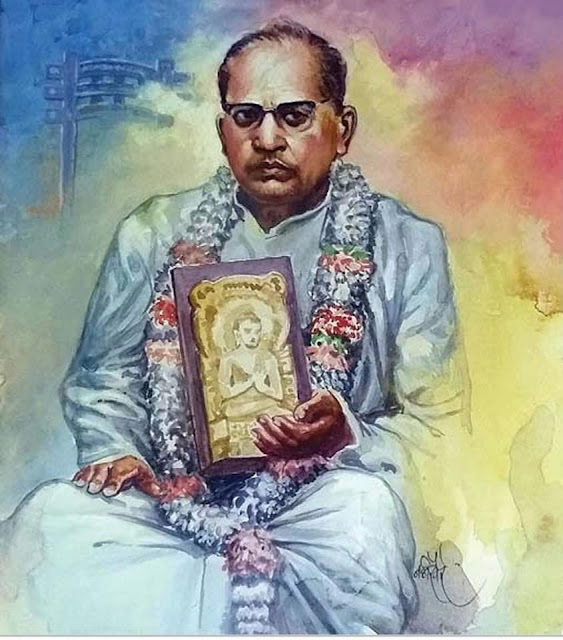Bhimrao Ramji Ambedkar lived 3 April 1952 – 6 December 1956. He was born untouchable in India. He would sit outside the classroom and look through the window to learn. He went to America and got a PhD and went to England and got a PhD, then went home to India to help write the constitution and become the country's first law justice minister in 1947. Later he decided he wasn't going to die a Hindu, no point in being untouchable, so he studied religion and decided on Buddhism. At his conversion to Buddhism he converts with many other untouchables. He created a liberation theology type movement where an oppressed class seeks to raise themselves out of poverty and poor social standing.
I've been friends with a fellow in Pune India, though correspondence, for many years. He was the secretary in the movement. He has a beautiful wife, bought a house for his family. He gave out supplies during Covid. He's a good guy, leads retreats now.
Naghabodhi's Jai Bhim! is one of many books about the ex-untouchables in India. Gandhi called them Dalit, god's children. Some people think that's not the term they want to use. Prerna Singh Bindra thinks it's a political stunt (source). Is it so hard to imagine ex-untouchable Hindus converting to Buddhism?
The Buddha and His Dhamma was Ambedkar's book on Buddhism, I have a copy of that book.
There's a lot of history in there, and I'm sure it's not as clean and simple as I present it. Ambedkar died 6 weeks after his conversion leaving a movement without a leader. Triratna set up an outpost. Sangharakshita was asked to perform the refuges and precepts. Sangharakshita was Theravadin then, and the custom is to have the most senior monk do it, so he referred Ambedkar to that monk. Later on Lokamitra went to England to help with the movement. He married a Dalit woman and has spent his life in service of the movement. There are other organizations. It's a fractured movement.
I'm just observing it and reading about it from New York. Every time I meet an Indian person, I ask if they know who Ambedkar is. The people in my neighborhood are from Gujarati, they've never heard of him. They're Hindu. I met a woman from Mumbai once, she was Muslim. She hadn't heard of Ambedkar. The Indians I met working on Long Island didn't know Ambedkar either. One guy I talked to told me Indians don't really know history of their country. He said his friends who watched the Ashoka movie, and they thought he should have kept fighting. One woman told me her father was a religious leader, and he said the castes are archetypes, bringing Jung into the mix.
As I've gotten older, I've gotten more patient and realistic, but I still hope for a classless, casteless society. of course there will still be hierarchy. I suppose I fantasize about a cashless future, like Star Trek where career fulfillment is the focus. Cultures of oppression will not be cherished, they will be eradicated.
I find the life of Ambedkar inspiring.















